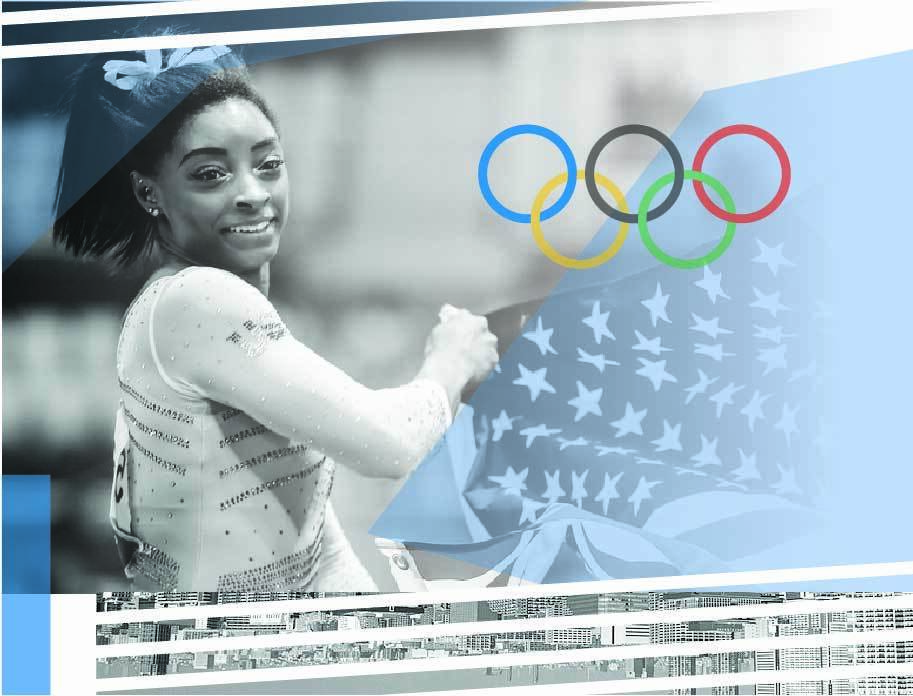
Dr. Brian P. McCullough
Associate Professor in the Health and Kinesiology Department in the Division of Sport Management at Texas A&M University His research focuses on the bidirectional relationship between sport and the natural environment in a subdiscipline of sport management called sport ecology.
Twitter: @mcculloughbrian

Section 1: Tokyo & Mega-Events
- Public relations as the key in the 2020 Tokyo Olympic and Paralympic Games
- Tokyo 2020, East Asian geopolitics and Olympic diplomacy
- Anti-sex beds? Fake news! : why this video went massively viral?
- Power sharing: Olympic sponsorship and the athlete’s personal brand
- The Tokyo 2020 Organizing Committee’s veil of effective public relations to help save itself and the start of the Games
- Host city and mega-events: Olympic legacy in Japan
- The rise of critical consciousness in Japan: An intangible and unintended legacy of the Tokyo 2020 Olympic Games
- The soft power of the Olympics in the age of Covid 19
- Tokyo 2020 Olympic Games, nationalism, identity and soft power
- The typhoon games
- Simone Biles and prioritizing athlete well-being
- How the female athletes of the Tokyo Olympics are reframing the way we think about motherhood
- Deliver a medal or apologize: A daunting task imposed on Japanese Olympians
- What happened to Rule 40 at Tokyo 2020?
- Cultural programming at Tokyo 2020: the impossible Olympic festival city?
- A green Olympic legacy for future generations?
- Lessons from Tokyo: the impact of the Paralympics in Japan
- Let’s play! Inspiring an inclusive mindset with a hands-on Paralympic experience for children and teenagers in Japan.
- The Olympic & Paralympic sponsorship without category exclusivity: Background of sponsorship exclusivity in Olympic and Paralympic Games (OPG)
- Counting cases, counting medals: Containing the Olympic contagion during the Tokyo Games
- The Olympic Games and ambush marketing via social media
- Pride and burden of striving for perfection at the Olympics
The International Olympics Committee (IOC) recognizes its sphere of influence and responsibilities to be a leader in the international sport landscape. Their three areas of recognized influence include itself as an organization, as the leader of the Olympic Movement, and as the owner of the Olympic Games. Environmental sustainability stands as the third pillar of the Olympic Movement and is a prominent focus of the Olympic Agenda 2020+5. Overall, the IOC’s Sustainability Strategy primarily serves environmental sustainability and how the Committee’s operations, organization, and production of Olympic Games can catalyze the global sport sector to advance the environmental sustainability movement in and through sport. The IOC’s Sustainability Reports and their recently completed new headquarters building (Olympic House) ranks as one of the most environmentally sustainable buildings globally with a LEED Platinum v4 certification and Platinum level certification from the Swiss Sustainable Construction Standard.
As the leader of the Olympic Movement, the IOC has taken instrumental and continued leadership in the creation and promotion of the United Nation’s Sport for Climate Action Framework. The Framework is designed to align the global sport sector with the Paris Climate Agreement’s targets and engage sport fans in climate awareness and climate action while they consume sport and in their everyday lives. Specifically, the Framework has five principles. First, signatories ought to engage in systematic efforts to promote greater environmental responsibility. Second, signatories commit to reducing their overall climate impact. Third, they will educate for climate action within their organization. Fourth, they will promote sustainable and responsible consumption. Fifth, advocate for climate action through communication to external stakeholders (e.g., fans, vendors, etc.). As of August 2021, there are 256 signatories, including sport federations, associations, and individual clubs/teams.
However, the IOC’s ownership of the Olympic Games garners the most attention and, not surprisingly, has the most significant environmental impact of their three areas of influence. For the Games, the host planning committee and the IOC are presented with a dual challenge regarding sport’s interaction with the natural environment. This bidirectional relationship, known as sport ecology, recognizes that sport impacts the natural environment and, conversely, the natural environment impacts sport. Consequently, the predominant focus of the IOC’s environmental sustainability is to minimize sport’s impact on the natural environment. These aspects are widely recognized in the IOC’s incorporation of the environment as the third pillar of the Olympic Movement.
The environmental impacts of preparing for and hosting the Games include production and consumption of the Games. The direct impacts of production result from the construction and operation of facilities, the planning and production of events, and staffing the events across all venues and operations. These aspects are within the greatest control of the Planning Committee. Tokyo 2020 significantly reduced its possible environmental impact by using existing and temporary facilities and minimizing the need to build new and permanent venues, a strategy replicated and advanced in the next two Summer Games (i.e., Paris 2024, Los Angeles 2028). The environmental impact of the production of the 2020 Games has taken center stage because of the restriction on attendance which reduces the direct impacts of consumption. The environmental impacts of the consumption of the games through fans’ transportation to and from the Games, on-site purchasing, and the increased consumption of apparel and concessions have been minimal as a result of spectator restrictions due to the COVID-19 pandemic.
The second challenge is to acknowledge and adapt to the ways the natural environment impacts sport. Throughout Tokyo 2020, there are many examples of this aspect of sport ecology. For example, outdoor matches in archery, rowing, surfing, and women’s triathlon were affected by a tropical storm. Further, despite the recognized possibility of extreme heat and humidity in the bidding documents for the Games, athletes competed in extreme heat and humidity, which impacted their performance and wellbeing. Matches were delayed due to the heat – most notably the women’s football final between Canada and Sweden.
The bidirectional relationship between sport and the natural environment, especially how the natural environment impacts sport, is an important reminder to consider how our actions adversely impact how we can enjoy sport as a participant or spectator. That is, the ways we have seen the natural environment impact sport at Tokyo 2020 stress the importance of immediate climate action to reduce humankind’s contribution to climate change and global warming. The best way to do that is by leading through example.
The IOC requires prospective host nations to outline their environmental sustainability plan in their bid. Unfortunately, researchers have found a gradual decline in the Olympic Games across all areas of sustainability (i.e., economic, social, environmental). Despite this trend, encouraging internal reports and external analyses indicate Tokyo 2020’s commitment to a net-zero energy goal and a circular economy approach to reduce consumption and waste will be met.
Tokyo may very well have one of the better environmentally performing Games in recent memory due to the forethought in planning and a matter of circumstance of fans not traveling to and attending events. Regardless, this Olympic accomplishment fulfills the IOC’s desire to be a global sport environmental movement leader. Ideally, this positive trend continues with the 2022 Beijing Winter and the 2024 Paris Summer Games.

